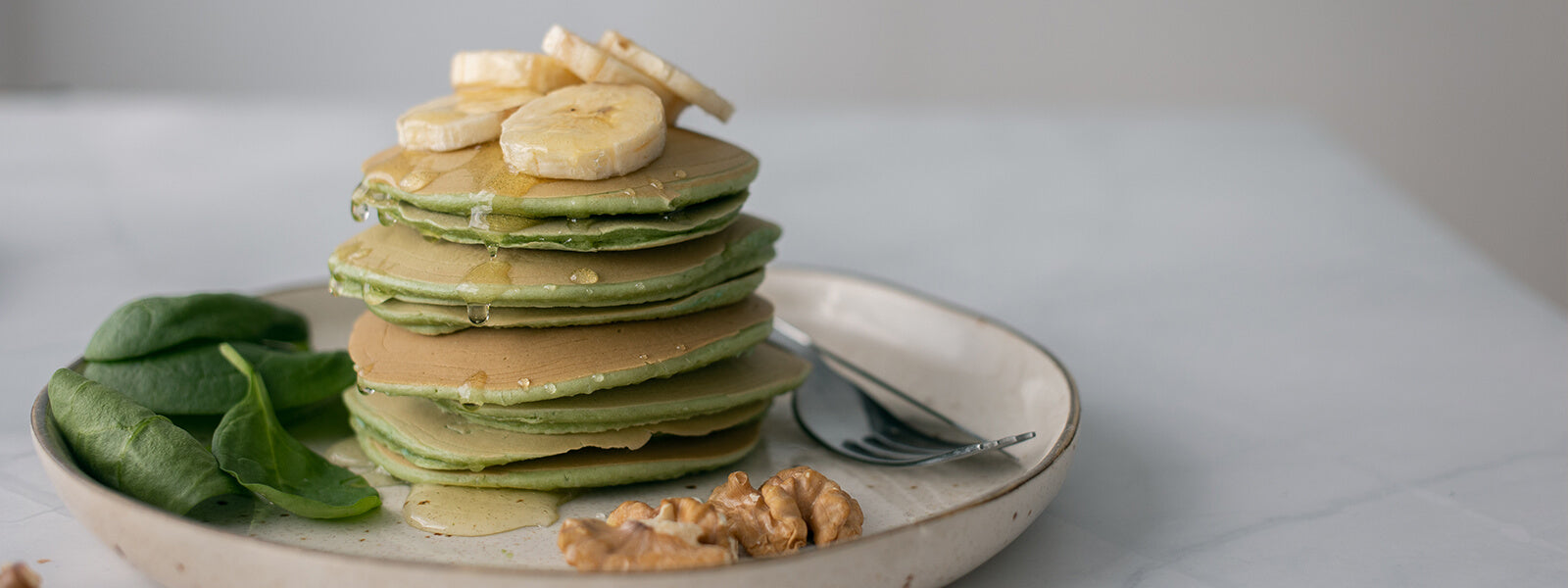The fenugreek plant, which belongs to the legume family, is the source of kasoori methi, commonly known as fenugreek leaves. For use in cooking, the plant's dried leaves and fruit are gathered. Similar to how we use basil, sage, or thyme leaves, etc., the fruit is utilised for its seeds, which are removed and dried to impart a pungent flavour. The leaves are used as an herb in cooking.
Table of Contents
Fenugreek leaves are utilised both fresh and as dried leaves. Fenugreek seeds are frequently used in cuisine. They are pickle-making seeds that are yellow-amber in colour. Powdered versions of the dried leaves are also used. The leaves taste a little bit harsh and have an earthy, grassy, somewhat sweet scent.
Fenugreek is known as "Methi" in India; "Kasuri Methi" in English means "dried fenugreek leaves." Kasoori Methi, which is widely used in India, North Africa, and the Middle East, was initially found in the Kasur district of Punjab (now a part of Pakistan), where it was given the name "Kasoori" in honour of its native land.
Taste of Kasuri Methi:
These dried, aromatic leaves have a light green colour and a flavour that is nutty, savoury, and just a little bit bitter. While its flavour disperses and mixes through smoothly and mellowly when added to foods, its perfume is overpowering and overwhelming on the nose. used in savoury, extremely aromatic foods like Indian curries, North African tagines and slow-cookers, and Middle Eastern hummus and sour yoghurt dips.
Culinary uses of Kasuri Methi
- Use like you would other dry herbs, such as basil, thyme, etc., to improve flavour and fragrance in recipes.
- Make a powder by gently grinding in a mortar and pestle.
- Sprinkle on top for a last fragrant garnish or use at the start of meals to bloom flavour and integrate throughout.
- For a fantastic side dish to go with a curry, garnish flatbread before baking.
- Use this to flavour your rice.
- When adding, start with a pinch and add more after tasting and smelling it.
- Before using, bloom them in a heated pan to release their volatile oils.
- For the best results, combine with legumes like chickpeas, red kidney beans, and lentils.
- Combine nicely with sweet potatoes, pumpkin, carrots, and potatoes.
- combines best with shellfish and fish as well as meats like chicken and lamb.
- Starchy veggies like potatoes and carrots go well with kasuri methi. It is a crucial component in the "Aloo methi" stew, a well-known meal in India.
- To add flavour to curries and vegetable dishes, kasuri methi is frequently mashed and sprinkled on top right before serving.
- Indian cuisine uses kasuri methi in a variety of recipes, such as the curry "Methi Matar Malai" (which is cooked with kasuri methi, peas, and cream) and the yeast bread "Methi naan" ( a flatbread that is eaten with stew).
- Kasuri Methi is also used to flavour and flavour raita and gravy meals.
How to prepare kasuri methi at home?
- When the leaves of fenugreek or methi are ready to be harvested, they will have a plump, firm texture and a brilliant, bright green colour.
- Go through the methi leaves and remove any that are rotting or dead.
- Wash them well to get rid of any dirt or contaminants.
- They should be well shaken to remove all the moisture, then coarsely chopped.
- Your leaves should be spread out on a clean, dry tea towel before being covered by another thin cloth or towel.
- Give them 2-3 days of exposure to the full sun in a safe location for them to dry out.
- The leaves can be ground into a powder and kept for up to six months in an airtight container by rubbing them between clean, dry palms.
Health benefits of Kasuri Methi:
The plant kasuri methi, which is made from dried fenugreek leaves, is also used medicinally. Its usage in Ayurveda, a kind of ancient medicine, to aid with digestion and trigger labour is evidence of its various health advantages. It has medical properties that include being hypocholesterolemic, anti-diabetic, anti-carcinogenic, antioxidant, antibacterial, and anti-fungal.
Some of Kasuri Methi's most well-known health advantages include:
Aids in the Treatment of Digestive Issues
The antioxidants in Kasuri methi aid in better digestion, which lowers the risk of a number of gastrointestinal issues. Good amounts of fibre are included in kasuri methi, which helps to relieve constipation. Irritable bowel syndrome, diarrhoea, and intestinal inflammation can all be avoided with regular use of Kasuri methi.
Brings down cholesterol
The synthesis of triglycerides and harmful (LDL) cholesterol in your blood can be decreased with the use of kasuri methi. Additionally, it aids in raising the amount of healthy (HDL) cholesterol. Because of its extraordinary impact on blood lipid levels, kasuri methi aids in lowering cholesterol in diabetics and prevents numerous cardiac conditions in non-diabetics.
Aids in managing diabetes
Kasuri Methi aids in regulating the body's rate of glucose metabolism. Type II diabetes may be managed with regular consumption of Kasuri methi, whether it be in stews, dals, or curries. It aids in enhancing insulin activity in diabetics because of the fibre content present. Due to their systems' inability to effectively digest carbs, diabetics can benefit from Kasuri Methi by improving their tolerance for carbohydrates.
Helps in respiratory issues
Winter is the best time to utilise Kasuri Methi to prevent respiratory issues. It may be crushed and sprinkled on food. Allergies and respiratory tract congestion are reported to be cured by it. It keeps the body's amount of mucus stable, which lowers the chance of developing chronic respiratory conditions. In addition to clearing the throat, Kasuri Methi reduces the urge to cough.
Keeps skin problems at bay:
The antioxidants in kasuri methi aid in the body's removal of toxins, which in turn maintains our skin healthy and free of conditions like eczema. Acne, sunburn, and other skin issues like pimples are avoided with the aid of kasuri methi. In order to maintain healthy skin, it also helps to eliminate old skin cells and replace them with fresh ones.
Iron, fibre, and protein are all abundant in kasuri methi. It may be a wonderful complement to your meals. It is an excellent source of nutrition as well as flavouring cuisine. This mystical plant should be consumed by those who have diabetes and heart issues.













Leave a comment